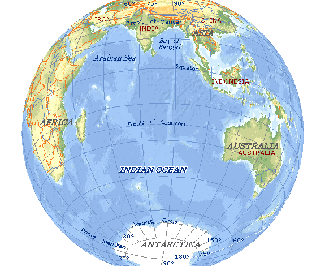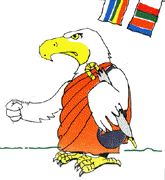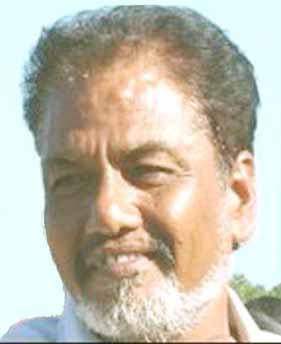Cheythi Alaikal: Recent news stories advance the
theme that LTTE should settle for solutions short of
Tamil Eelam. What is your comment on this trend?
Balakumaran: One has to view this with a deep
understanding of the historical background to the
conflict. Thamil Eelam is not a hastily concocted
concept. It did not fall from the sky. Conceptualized
before 1948, it developed gradually over time and was
strengthened by history in the years since
independence. I do not want to repeat history on how
the support for Tamil nationhood grew gradually and
finally it received mandate in 1977 elections. Colombo
has attempted to blur this truth and has been trying to
establish that Tamil Eelam was invented by LTTE. The
truth is that the responsibility to advance this
mandate currently rests with the LTTE.
LTTE was guided by this ideal since its inception.
However, the movement had articulated clearly that it
was open to examining credible alternate proposals. We
regret that this request had not received the attention
it deserved. Everyone knows that the South is not ready
to offer any solutions to the Tamil question - even the
solutions proposed by International Community. Recent
news stories are intended to break the determination of
Tamil people and to create confusion among our people.
One has to question why such messages were not
articulated by other powers to national struggles of
other peoples, for example why India didn't say this to
Bangladesh; US to East Timor, Kosovo, or to the many
nations breaking away from the old Soviet block?
Our people have to clearly understand
the motives behind such moves by the International
community.
Cheythi Alaikal: Is there a need for our people and
the LTTE to recognize the political climate of the
International Community, and modify their ideals?
Balakumaran: Certainly not. Here an important
question arises. We are a nation. We cannot change on
the basis that so and so said that and so and so said
something else. Our people have undergone untold
suffering in the past three decades. We are in the
midst of a war. We should preserve our spiritual power
to overcome the odds until we achieve our
liberation.
Cheythi Alaikal: A view is expressed that a solution
to Tamil struggle can be achieved only with the support
of the International Community. Do you agree?
 Balakumaran: This is a commonly
held view. At the same time, our people must have a
deeper understanding. We must inquire why it is that International
actors are responding differently to the national
liberation struggles of different peoples. The
axioms accepted for one struggle is negated for
another.
Balakumaran: This is a commonly
held view. At the same time, our people must have a
deeper understanding. We must inquire why it is that International
actors are responding differently to the national
liberation struggles of different peoples. The
axioms accepted for one struggle is negated for
another.
We will realize that countries are motivated by
their own self interests in the outcome. A national
liberation struggle is cognizant of the welfare of its
own people. If the struggle begins to listen to other
people's dictates, and compromises its ideals for other
people's welfare, than that reflects the weakness of
the struggle. Tamil people have a duty to clearly
understand this.
Cheythi Alaikal: For a liberation movement to be
successful, how important is it necessary to show its
strength?
Balakumaran: We traditionally equate strength with
military might; but, military strength is only one
aspect of the liberation struggle. Liberation struggle
draws its strength from the determination of its
people. Desire for freedom, once felt, never leaves the
mind even for a moment. There is no substitute for
freedom. A liberation struggle cannot be quenched
except by reaching its goal. It does not mean amassing
battlefront successes. This is a marathon; having the
strength to confront the obstacles to the finish is how
the success of a liberation struggle is assessed. Our
people are demonstrating this strength and the
accompanying resilience.
Cheythi Alaikal: Can we expect that Sinhala leaders
will offer a just solution to the Tamil question?
Balakumaran: History proves that this will never
happen. Since 1948, our people lived with this illusion
- while the first prime minister D.S. Senanayake was in
power, we believed Kottalawela will be good to us
-since then, South has had a array of leaders J.R.
Jayawardena, Premadasa, Chandrika, and now
Rajapakse. Sinhala people, driven by their perception of history,
is in a mindset, which will not allow them to elect
leaders who can pursue a fair and just approach to
resolve the Tamil issue.
Sinhala people, driven by their perception of history,
is in a mindset, which will not allow them to elect
leaders who can pursue a fair and just approach to
resolve the Tamil issue.
In the current government policy makers include
extremists like Champika Ranawaka and JHU. Tamil
struggle is aimed at changing this mindset. Our
experience shows this change cannot be created by us.
That is why we are now seeking nationhood to preserve
our lives and livelihood. However, we are not
pessimists; if a Sinhala leadership offers us a just
solution we are willing to consider it.
Cheythi Alaikal: The leaders of the South are
elected by Sinhala people. Do Sinhala people then deny
existence of Tamil grievance?
Balakumaran: Certainly. Over the years, racist ideas
were sowed within the Sinhala populace. These ideas
have taken a deep root in their collective conscience.
Sinhala people have been led to believe all their ills
have been caused by the Tamil people. Our struggle will
lift this illusion and show the practical realities of
the difficulties Sinhala people face. Our liberation
struggle will also help the Sinhala people to recognize
the real path to achieve peace prosperity and
happiness. Sinhala army is the guardian of Sinhala
racism. To lift this illusion, we must beat back the
Sinhala army from our homeland.
Cheythi Alaikal: What political aspirations should
the Tamil people have?
Balakumaran: We must be clear of our goal. There
must no confusion about our goal. The strength of this
belief is the propelling force. Currently, LTTE is the
only credible vehicle to achieve this goal. People may
find fault with members who spearhead this struggle,
may not agree with every activity; but at no time,
their belief in the goal should waver. The ideal, the
liberation, should transcend the individual. Our people
have a clear distinction between the ideal and the
shortcomings of some individuals who pursue this ideal.
Tamil people have shown this clarity; our message to
them is to continue in this path.
Cheythi Alaikal: How can the media help Tamil
people?
Balakumaran: Media must inform the Tamil people with
truthful news.
Cheythi Alaikal: How would you like India to view
the Tamil issue?
Balakumaran: We observe Tamil Nadu state along with
Indian national government. There is a link between us.
Our regret is that the India's policy makers are
viewing Tamil people's struggle through their lens of
their country's political welfare. Until Indian central
government approaches this intellectually and recognize
that ours is a struggle for survival by an oppressed
people in the land of their birth, India cannot make
any healthy, fruitful contribution. India has
approached our struggle as an integral part of their
national political equation. Like in
a political chess game, India has taken positions
beneficial to the governments in power. We have
said clearly Tamil Eelam is not against India; we will
uphold Indian welfare as our own. There was a time,
when India looked after our welfare as her own. India
will change its current policy towards us one day. We
believe firmly, our strong cultural ties to our
brothers and sisters in India will help their policy
makers to select a just and fair path towards our
people. We cannot wait for India's change of mind to
continue with our liberation. One fact should be clear,
no one should doubt our friendship, and strong ties to
India.
 A free translation in English of the
interview with K.V. Balakumaran, aired by Cheythi
Alaikal, an Australian Radio broadcast on 3 June 2008
follows - but the true sense will appear only from the
Tamil audio original.
A free translation in English of the
interview with K.V. Balakumaran, aired by Cheythi
Alaikal, an Australian Radio broadcast on 3 June 2008
follows - but the true sense will appear only from the
Tamil audio original.